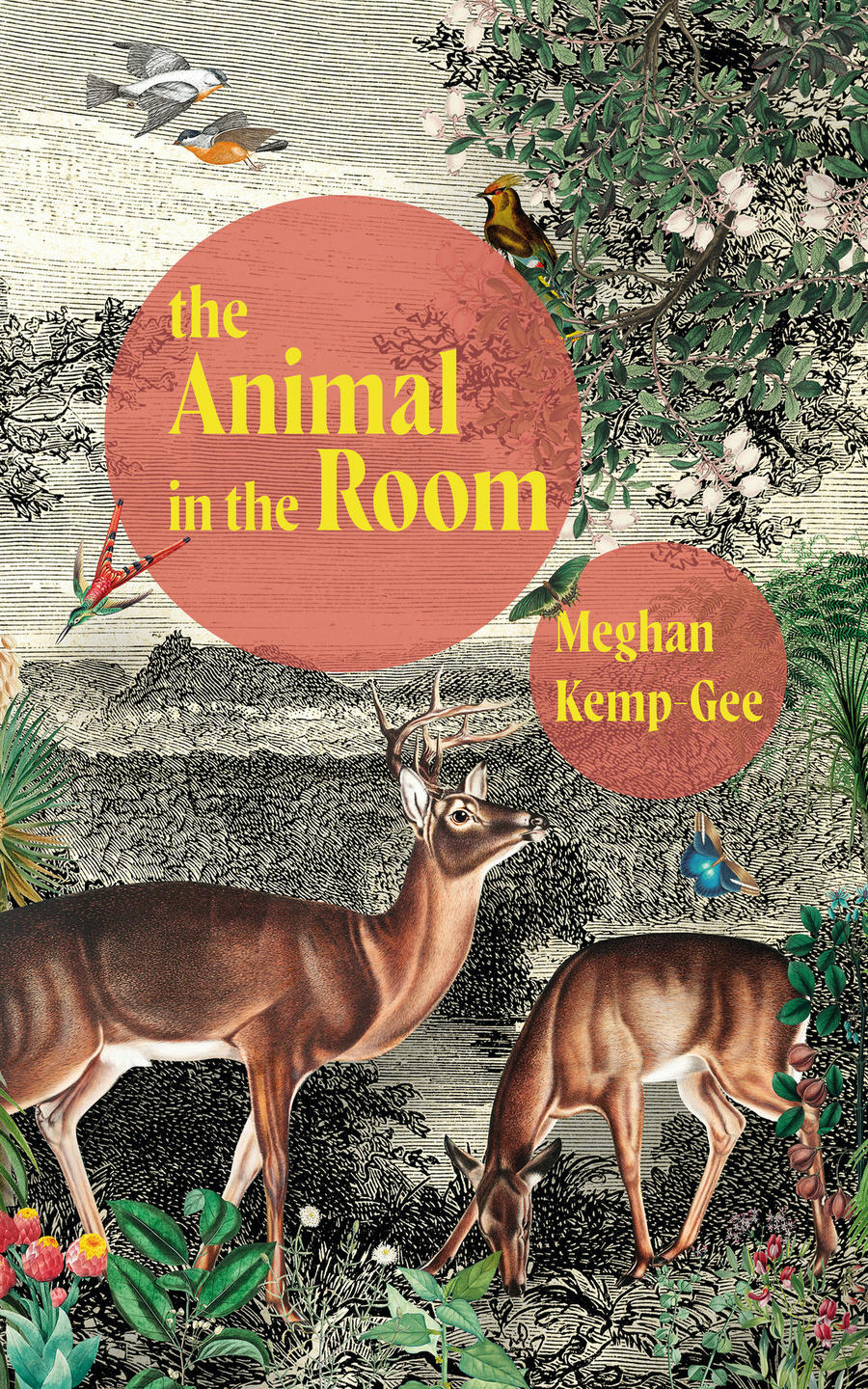USEREVIEW 120 (Capsule): The Animal in the Room
Meghan Kemp-Gee
The Animal in the Room (Coach House Books, 2023)
ISBN: 978-1-55245-460-2 | 80 pp | $23.95 CAD | BUY Here
#CAROUSELreviews
#USEREVIEWEDNESDAY
Meghan Kemp-Gee‘s debut poetry collection is billed as “a little bestiary” centred around deer, wolves and the spectral voices of extinct lizards and soon-to-be extinct whales. It’s a description that underplays the sheer structural acrobatics she uses to create — and then resolve — a tense, biting and agile conversation about euphemism, superimposed experience and being seen through others’ eyes.
It’s those gaps between our insides and outsides — sometimes fascinated, sometimes furious — that The Animal in the Room can’t help but stick its fingers into. Its pieces are often reacting to hollow turns of phrase, other poets, something ominous just out of frame — or framing the assumptions they refute with their own titles when there’s nothing else to push. Focused on the queasy space where disjointed and incongruent perspectives meld or shatter, Kemp-Gee wisely grounds her work in clear, concise language and taut rhythms that quote Elizabeth Bishop as easily as Darth Vader, and a fondness for recapitulation that makes this collection exceptional.
Kemp-Gee’s sense for recapitulation doesn’t stop at phrases: it scales up, using the same tense, prayerlike technique to connect poems into playful, iterative strings of ideas. It’s a book that doesn’t think in straight lines: cycling back around to themes and motifs, developing and deepening, shifting the context like it does in smaller scale. The grim, white-knuckled ‘The Letter of Recommendation,’ ten poems later, evolves and humanizes in ‘You Emailed Me Your Resume’; its closing lines (“my question is why do we keep / using the same words and how would / a wolf talk and what would it say”) inevitably pay off, in the biting ‘The Wolf Emailed Me Its Resume.’ By the time the resume resurfaces in ‘Whoso List III,’ it’s surprising enough to laugh.
This genius for idea-priming — and timing — makes a delight of not just what Kemp-Gee’s poems say, but where they say it: deliberately blending symbols until they unify in ways that feel organic and earned. It’s a collection to make you think about organizing poems as an art: tightly fractal, lightly fabulist, with a structure that sings like a mixtape — the kind that you’d swear was one song.
Recommended excerpt:
From ‘The Vancouver Island Marmot’ (p. 17):
we will send
out a look
out we will
send one of
us one of
all twenty
one of us
one or two
of us know
a thing or
two about
how it is
an island
can be a
lifeboat a
life can be
a lifeboat



